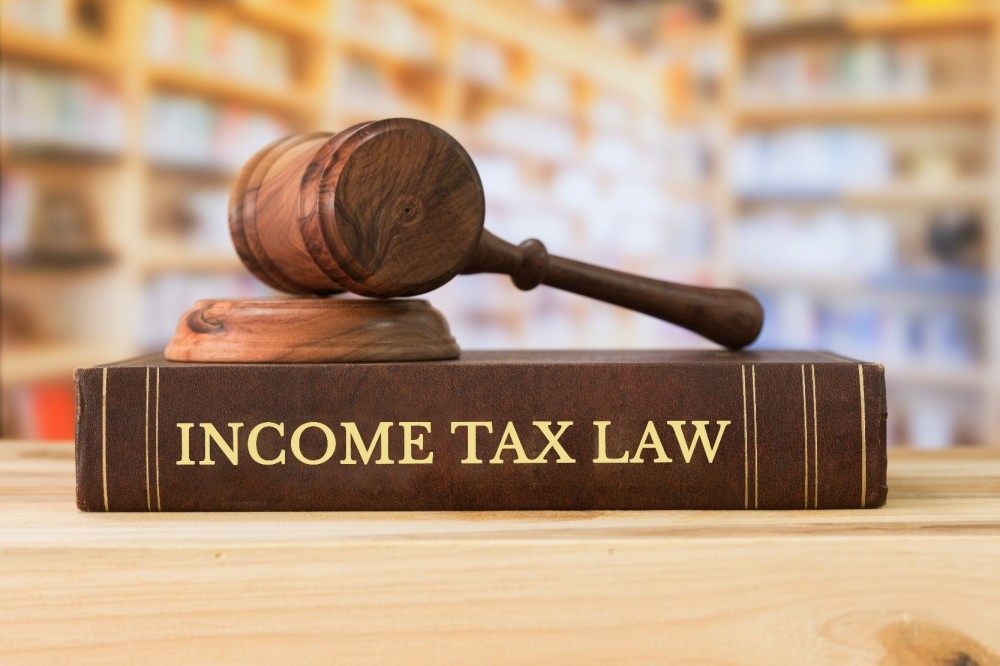
In simple words, an income tax return is a small percentage that the government takes from our income. We are liable to pay this money out of our income as a law of the nation we live in. This money which is deducted from our income is called tax. We pay income tax only if we are liable to do so.
In simple words, an income tax return is a small percentage that the government takes from our income. We are liable to pay this money out of our income as a law of the nation we live in. This money which is deducted from our income is called tax. We pay income tax only if we are liable to do so.
The Government of India drafted India’s Income Tax regulations. A tax on taxable income is levied on all individuals, Hindu Undivided Families (HUFs), businesses (including LLPs), professionals, a municipal government, and any other workers falling under the government regulation. Their pay scale status under these rules determines a person’s tax status.
Every person who meets the criteria to be considered an Indian resident is expected to pay tax on their worldwide income. Taxpayers must adhere to guidelines when preparing and submitting their tax returns each year (ITRs).
The Legal Framework
Income Tax Act, 1961
The Income Tax Act, 1961 is an act to levy, administer, collect, and recover income tax in India. The act is effective from 1 April 1962. It consists of 298 sections and 14 schedules. The act helps determine a taxpayer’s taxable income, tax liability, appeals, penalties, and prosecution. The government has been making amendments to the act from time to time.
Income Tax Rules, 1962
Income tax rules act as a supplement to the Income Tax Act, 1961. Income tax rules are effective from 1 April 1962. The Central Board of Direct Taxes (CBDT) has the power to amend the income tax rules. For example, Section 10 (13A) (1) of the Income Tax Act states that the house rent allowance can be exempted up to a certain limit. Rule 2A under income tax rules states how the limit can be calculated.
Getting Refund On Paying Excess Tax
Before requesting a refund of overpaid taxes, keep in mind that you have a deadline to meet. You must file your tax return for the relevant assessment year within the specified timeframe to be eligible for a refund. The financial year (FY) after a previous financial year is the assessment year.
Understanding An Income Tax Return
Taxpayers in India must submit an ITR to the Income Tax Office. The liability of a taxpayer is determined by the amount of money they make. Income tax refunds are available if the individual’s return demonstrates that they have paid too much tax in a given year.
The Income Tax Department of India uses the Income Tax Return form to receive information from individuals about their earnings and the taxes they owe for the previous year. A taxpayer’s statement in an ITR should be relevant to the fiscal year from April 1 to March 31 of the following year.
Earnings can come from various sources, including salaries, commercial profits, the sale of real estate or other assets, dividends or capital gains, and interest. The Income-tax department would reimburse you if you paid too much tax in a given year.
If you earn more than the amount free from taxation by the Government, you must file a tax return according to the tax brackets for each year. You may be penalized for Income Tax Return Filing beyond the required date, which could affect your chances of acquiring a loan or visa.
You must file your income tax returns if your income exceeds the basic exemption limit set by the Indian tax authorities. Taxpayers have no say in how much tax they pay because the rate is set in stone. In addition to the late filing fines, a delay in submitting your tax returns might harm your ability to secure a loan or a visa for travel.
Individuals and businesses must pay income tax only if they fall into specified income brackets defined by the Tax Act.
The following organizations and businesses must file their Income Tax Return Filing on a mandatory basis in India.
Who Has to Submit an ITR?
With this background knowledge, let’s look at who is required by law to submit an Income Tax Return Filing each year, both as an individual and as an organization.
Individuals younger than 59 with an annual income more significant than ₹ 2.5 lakhs are eligible to apply. Senior persons aged 60 to 79 are exempt from paying income tax on amounts up to ₹ 3 lakhs, while those aged 80 and more are exempt from paying income tax on payments up to ₹ 5 lakhs. Section 10 of the Internal Revenue Code mandates that deductions should not reduce income.
Checking Your ITR Status Online: How Do You Do It?
You may easily track the progress of your IT Return on the e-filing website of the Government of India after you’ve submitted it. A few simple ways to verify your ITR status can be found on the website, depending on whether or not you have an account. When you do not have a login, you can access the ITR by clicking on the ITR status link on the left-hand side of the website. Your PAN number, ITR acknowledgement number, and captcha code will be entered on the next page. Once you’ve entered your information, you’ll see if you need to file a tax return. Access the website through your username and password. After that, select ‘see returns or forms’ from the dropdown menu. Select the tax year and the corresponding tax return from the dropdown menu. After that, you’ll be able to see if your Income Tax Return has been processed or verified.